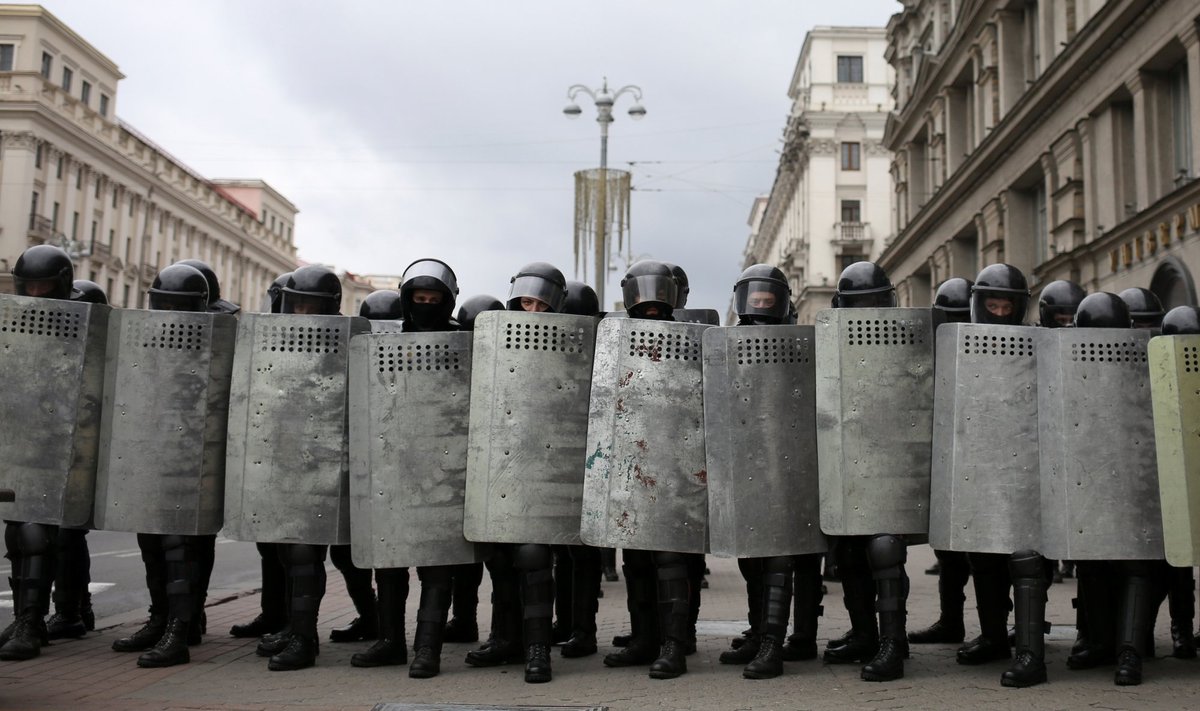In a video posted on pro-government Telegram channels, Yelena Cimbalist says she is a Lithuanian citizen and works as a teacher in a Minsk school, Nasha Niva, a leading independent Belarusian online newspaper, reports.
In the video, the 58-year-old woman allegedly admits to having participated twice in protests following the 2020 presidential election and to having read messages from "destructive channels".
Belsat, an independent Belarusian TV channel, cites a Telegram channel linked to Belarusian power structures as claiming that Cimbalist moved to Belarus in 2011. She is accused of involvement in protests and destructive activities.
Viasna, a leading human rights group in Belarus, also reported about her detention.
The Lithuanian Embassy in Minsk has not been officially informed about the alleged detention of the Lithuanian citizen. In response to news reports, the embassy handed in a note to Belarusian representatives, asking for information on the circumstances of the incident, Paulina Levickyte, an adviser to the Lithuanian foreign minister, told BNS.
Speaking with the Lithuanian public broadcaster LRT, Olga Karach, head of the Belarusian International Center for Civil Initiatives "Our House" in Lithuania, said the teacher was not detained because she had joined some groups on social media, for example, but "because she is a Lithuanian citizen".
"The Belarusian regime is looking for ways to put pressure on Lithuania because Lithuania has a principled position and Lukashenko wants to bring Lithuania to its knees at any cost, to force it to negotiate, to talk. In this case, things need to be called the way they are: Yelena Cimbalist was taken hostage by the Belarusian regime to blackmail Lithuania," Karach said.
On August 9, 2020, mass protests erupted in Belarus after the country's authoritarian President Alexander Lukashenko, who has led the country since 1994, had won the elections again.
The opposition and Western countries do not recognize this election as free and fair.
The Belarusian authorities launched a crackdown on the opposition demonstrations and over 35 000 people were detained by the police, and thousands of protesters later said they were subjected to violence by members of the power structures. Key opposition figures were imprisoned or forced to flee the country, and independent media outlets were searched and their journalists were arrested.
Sviatlana Tsikhanouskaya, who challenged Lukashenko, also left Belarus and now continues her political activities from Vilnius.
The EU has now sectoral sanctions for Belarus in place. Sanctions were previously imposed on individual Belarusian officials involved in the crackdown on peaceful demonstrations. In parallel, the US, the UK and Canada tightened their sanctions for Belarus.
There are currently 1,375 political prisoners in Belarus, according to Viasna.
